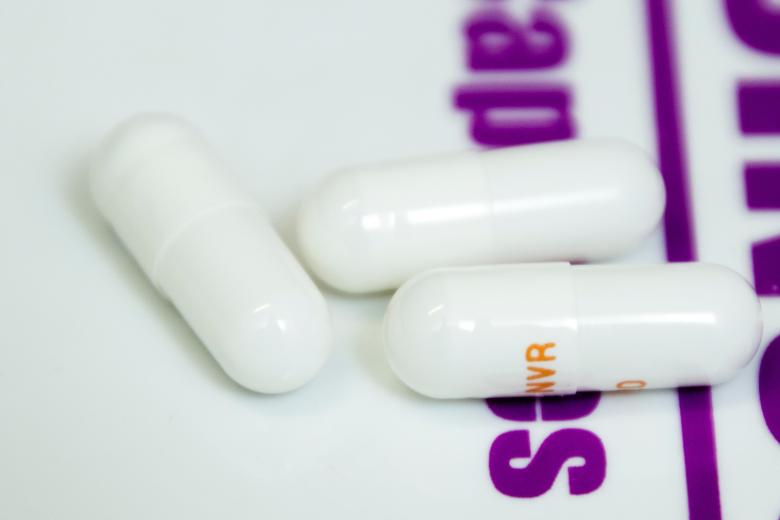'Good cholesterol' also has negative effects
In a study published this week in the leading scientific journal Cell Metabolism, researchers at Maastricht University revealed that HDL increases the inflammatory response of immune cells called macrophages, which play a key role in atherosclerosis. This could help explain the disappointing results of previous clinical trials on HDL-raising therapies for atherosclerosis.
High-density lipoproteins (HDL) are more commonly known as 'good cholesterol' partly because HDL is responsible for removing excess cholesterol from vessel walls and transporting it to the liver for degradation and excretion. As a result, it helps to prevent the deposition of cholesterol in arteries. It also helps to inhibit inflammation in two important vascular wall cells: endothelial cells and smooth muscle cells. Because of this dual function, it was assumed that HDL protected against the development of and complications associated with atherosclerosis. Surprisingly, clinical trials on the effects of increasing HDL levels for therapeutic purposes have yielded disappointing results.
In an article published this week in the leading scientific journal Cell Metabolism, Assistant Professor Marjo Donners and Professor of Experimental Vascular Pathology Erik Biessen from Maastricht University revealed that HDL enhanced inflammation in macrophages. They confirmed this unexpected result for various HDL sources in macrophages taken from different tissues in both humans and mice using tissue experiments and animal models. The researchers also examined how HDL does this: by extracting cholesterol from these immune cells, for instance. As a result, the basic function of macrophages – to combat bacterial infections – improved considerably.
Macrophages are key immune cells that protect us from infections caused by bacteria and other microorganisms. All bacteria that enter our bodies are identified, neutralised and deactivated by macrophages. However, they also play a crucial role in chronic inflammatory conditions such as atherosclerosis, which is the most important underlying cause of heart disease and the number one cause of death worldwide. Atherosclerosis is a localised narrowing of the artery caused by an accumulation of fats (including cholesterol), connective tissue and immune cells in the vessel wall. Macrophages are the most common cell type in this narrowing process (plaque) and contribute actively to disease progression. Macrophages digest the fats and cellular debris that form plaque, but also produce inflammatory substances and enzymes that facilitate plaque build-up and reduce plaque stability. This increases the chance of a rupture and subsequent clinical complications, such as heart attack and stroke.
How do these results impact mankind and, more specifically, patients with cardiovascular disease? The proper functioning of macrophages is crucial to combating infectious diseases. The results of this study suggest that people with low HDL levels are impaired at clearing bacterial infections. HDL-raising medications could improve this process and may even stabilise immune response in patients with weakened immune systems. However, caution is warranted in patients with chronic inflammatory diseases, such as rheumatoid arthritis, Crohn's disease and atherosclerosis. Improved macrophage functioning is particularly beneficial for patients in the early stages of atherosclerosis as it could contribute to eradicating fats and cellular debris and thereby reduce plaque formation. However, the study indicates that an increased production of inflammatory substances could be counterproductive in the later stages of the disease because it reduces plaque stability and may increase the risk of heart attack. This could help explain the disappointing results of the HDL therapy. In any case, this study shows that HDL activity is far more complex than previously thought and that more research is needed to identify the cell- and disease-dependent effects of HDL and develop more targeted HDL therapies.
The research conducted by Donners was made possible with the help of a Dr. E. Dekker grant from the Dutch Heart Foundation.
Also read
-
Menstruation is still a taboo in the workplace
In honour of the presentation of the VNVA Els Borst Prize for her oeuvre, Prof Marlies Bongers is organising the symposium "menstruation in RED on the agenda" on 1 October.

-
Repeat miscarriages: does the immune system play a role?
In women trying to conceive, 1-3% experience repeated miscarriages. For more than 50% of these women, a cause for the miscarriages has yet to be found. New research from Maastricht University (UM) and the Maastricht University Medical Centre+ (MUMC+) shows that the immune system’s Natural Killer (NK...

-
New European project aims to think outside the box when it comes to medicine
The European Commission has awarded €23 million to set up a new platform for drug repurposing: the use of existing drugs in diseases other than those for which they were originally developed. In the next seven years UM will develop the platform REPO4EU (precision drug REPurpOsing for Europe)...
